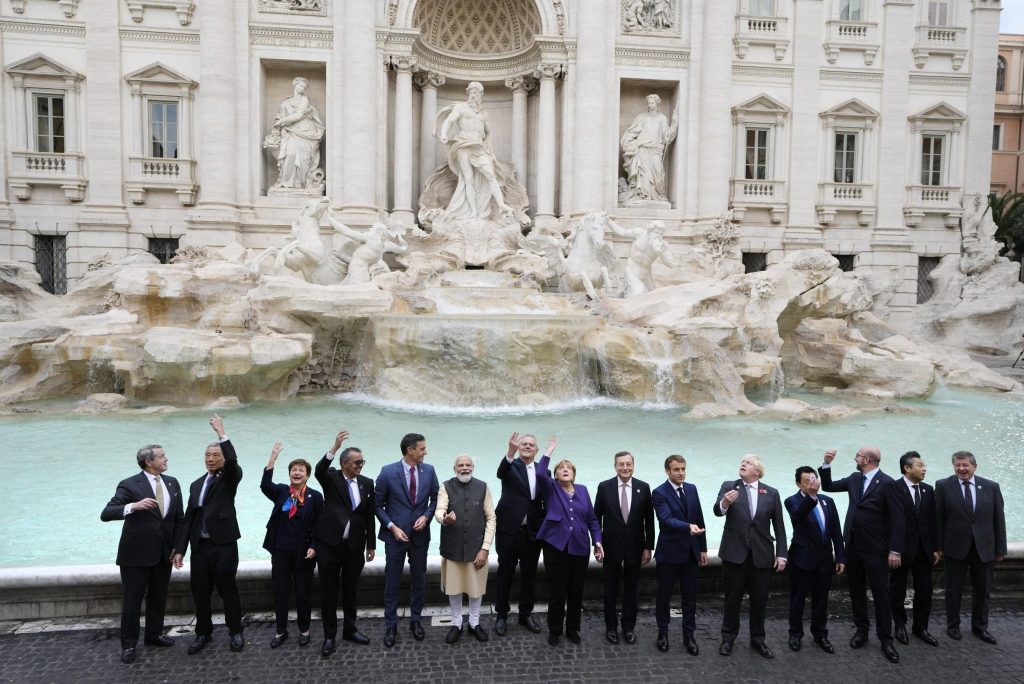The G20, made up of the 19 richest countries and the European Union, is responsible for 80 percent of global emissions. With the aim of the subsequent climate conference in Glasgow, the leaders had to reach an agreement on global warming. How do we limit it to a degree and a half? With this agreement, they are now heading to the Scottish capital’s climate summit, which began today.
Reducing global warming
In the agreement, the G-20 reaffirmed previous goals set out in the Paris Climate Agreement. The nations then agreed to limit the increase in the average temperature on Earth to less than 2 degrees at the end of the century, preferably 1.5 degrees at most. But countries are now taking a step forward, adding that “meaningful and effective actions and commitments from all countries are required” to reach the 1.5-degree target.
However, no concrete goals have been set. For example, no target date has been set for achieving carbon neutrality, nor for ending coal electricity generation.
No subsidies for coal plants
However, the leaders decided to stop subsidizing new coal plants this year. “We will end intergovernmental funding for new coal-based power plants by the end of 2021,” the text reads.
The agreements revolve around coal-fired power plants where the technology is not used in any way to reduce carbon dioxide emissions. According to Bloomberg, this is a severely watered-down statement.
It was already expected that countries would no longer want to invest money in building dirty new coal-fired power plants across the border. But no firm agreements have been reached on domestic coal-fired power plants. Only the G20 countries pledge to support countries committed to phasing out investments in new coal-fired power plants. Previous versions would have contained concrete agreements on phasing out coal-fired power plants.
Minimum tax for multinational corporations of 15%
The G20 also reached an agreement on a minimum tax for multinational corporations. It will be 15 percent. This would make shifting profits to low-tax countries less interesting for multinationals. In addition, part of the taxes must be paid anyway in the country or countries where the profits are made.
Iron and Steel Import Duty Agreement
The administration of former US President Donald Trump imposed high import duties on European steel and aluminum. Since taking office, incumbent President Joe Biden has promised to restore relations with Europe. Now, in Rome, an agreement has actually been reached between the United States and Europe: some import duties will disappear.

© AP
The riots between Biden and Macron have subsided
US President Joe Biden also used the momentum in Rome to calm a diplomatic row with his French counterpart Emmanuel Macron over the military agreement with Australia. Biden is said to have asserted that the United States handled the situation “extremely inappropriately”, but there was no sincere apology.
More vaccinations against corona virus
G20 heads of government also want to create a financing mechanism to prepare for potential pandemics in the future. This is what German Chancellor Angela Merkel said on Saturday evening, and this mechanism should allow laying the foundations for better preparedness in the event of a future outbreak. Financial resources can also be used to strengthen WHO.
Merkel also backed the G20’s commitment to vaccinate 40% of the world’s population against the coronavirus by the end of the year. By the middle of next year, that number should rise to 70%. Germany will donate another 100 million doses this year. Next year, there will be another 75 million doses of vaccine.

“Creator. Award-winning problem solver. Music evangelist. Incurable introvert.”







More Stories
British military spy satellite launched – Business AM
Alarming decline in the Caspian Sea
Lithuania begins construction of military base for German forces